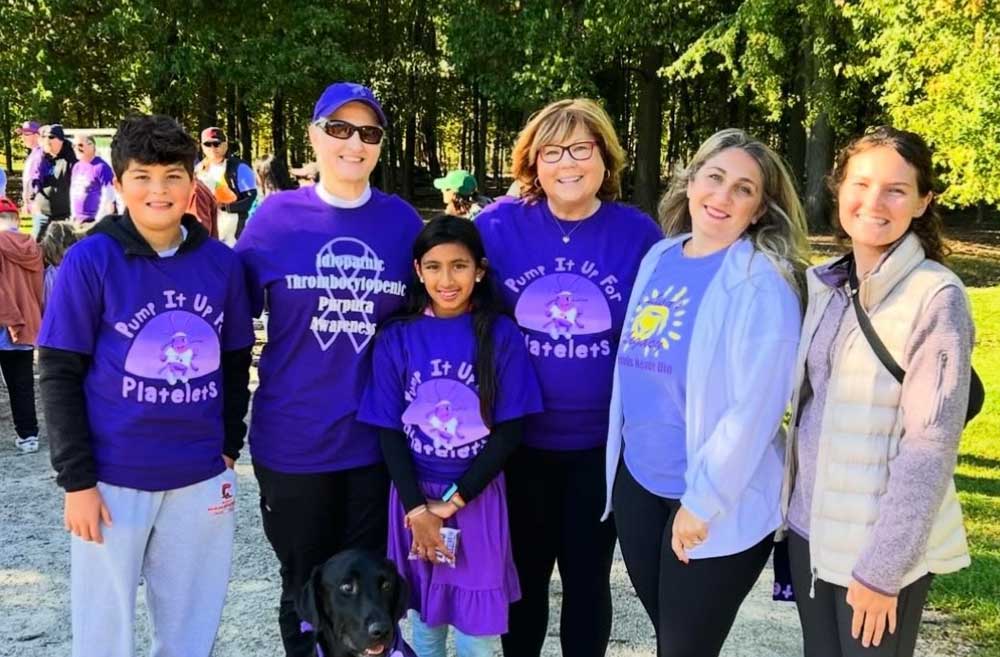Tracey's Story
Living with Immune Thrombocytopenia
At 51, Tracey thought her strange bruises were just part of aging—until tests revealed a dangerously low platelet count and a diagnosis of ITP. After years of failed treatments and unpredictable health, she found hope and community through the Platelet Disorder Support Association. Today, she’s a passionate advocate, leading local support efforts and raising awareness for better treatments and understanding of ITP.

At 51, Tracey noticed painful bruises on her legs that lingered for weeks. She dismissed them at first but began to worry when she observed more bruises on her back, bleeding gums, and even blood blisters on her tongue. She finally sought help when she scratched her hand and watched as blood began to pool beneath her skin.
Her internist diagnosed her with immune thrombocytopenia (ITP) when blood tests revealed her platelet count was dangerously low. A normal platelet count range is 150,000 to 450,000 per microliter of blood, and Tracey had just 15,000 platelets per microliter of blood. She was referred to a hematologist, and almost immediately the hospital called urgently: her count had dropped to 6,000. She was admitted and started on treatment.
Despite treatment, Tracey’s platelet levels remained unstable. Subsequent treatments offered temporary hope, but her platelets were still unpredictable, and she struggled with medication side effects.
I was mentally exhausted,” she says. “Every week brought more bad news.
Eventually, Tracey discovered the ITP patient community and attended a walk that changed everything. Meeting others with ITP validated her experience and inspired her to start a local support group. She has since organized an awareness walk, which has now become an annual event.
Today, Tracey’s condition is stable. Her platelet count is monitored closely, and she continues to work with her doctor to optimize her treatment.
Through her advocacy with the Platelet Disorder Support Association (PDSA), Tracey has become a knowledgeable and empowered patient. She now champions the need for an ITP Center of Excellence and better treatment options for those who don’t respond to current therapies.
I’ve learned that trusting doctors isn’t always enough,” she says. “You have to be your own advocate.
Support and Resources
Living with Immune Thrombocytopenia (ITP) can be challenging, but you are not alone. There are organizations, support groups, and trusted resources that can help you better understand your condition, connect with others, and find the support you need.




